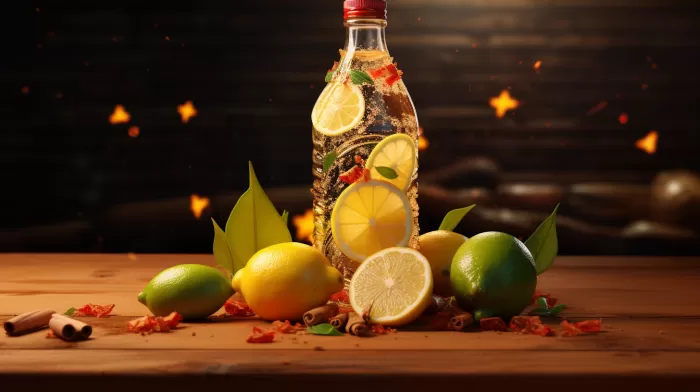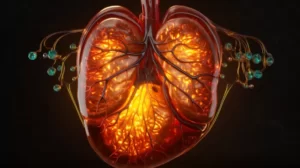In order to keep your liver in optimal health, it is important to pay attention to your environment, diet, and lifestyle. Our modern lives expose us to a wide range of environmental toxins, making it crucial to take steps to reduce our exposure.
Clean Up Your Environment
There are hundreds of untested chemicals (endocrine disruptors) in our personal care products and cosmetics. There are fumes in household cleaners. There are chemicals like food dyes and additives in food. All these comprise your “body burden” and are known to exacerbate physical symptoms from allergies and asthma to headaches and fatigue. While it’s not possible to eliminate all harmful chemicals from your life, you can still take some measures to lessen the burden on your body. Here are some ideas to consider:
- Eat mostly raw, whole foods: Start with fruit/nut smoothies, drink fresh juice, and do your best to eliminate processed foods that contain additives, dyes, and preservatives.
-
Choose personal care products carefully: Opt for natural alternatives containing herbs and plants instead of synthetic chemicals.
-
Use plastics wisely: Avoid microwaving food in plastic containers and choose glass or BPA-free food containers and baby bottles.
-
Be cautious with Teflon pans: Avoid heating them above 450° F when they release toxic gases.
-
Switch to non-toxic cleaning products: Use vinegar, baking soda, and hydrogen peroxide as alternatives to standard products that contain chlorine bleach.
-
Avoid toxic pest control in your home and garden.
-
Clean your air by ventilating often and introducing more green plants indoors to serve as natural air detoxifiers.
-
Clean your water by investing in a shower filter and a drinking water filter.
-
Reduce exposure to electromagnetic frequencies (EMFs) from cellphones, laptops, and other electronic devices.
Further Measures
Since your liver is the “vacuum cleaner” of your bloodstream, fewer toxins in your body cells and fluids allow it to detoxify more efficiently. To support liver health, drink six 8-ounce cups of water a day and consider adding lemon to your water to aid phase 2 liver detoxification. Regular exercise that causes a good sweat is another effective way to remove toxins from your body.
A liquid cleanse can also jump-start your health and liver-cleansing function. If you are interested in doing a liquid cleanse, make sure you understand the basic rules and consider cleansing under the guidance of a healthcare professional.
The Lemonade Cleanse
A popular option for a liquid cleanse is the Lemonade Cleanse, which consists of the following ingredients:
- Grade B maple syrup (not Grade A or pancake syrup)
- Fresh lemons or limes (not concentrate)
- Cayenne spice
- Six water bottles (to prepare and store the mix for up to six hours)
To make the lemonade cleanse mixture, combine the following in each 16-ounce water bottle:
- Water (nearly fill up the bottle)
- Juice from half to one fresh-squeezed lemon or lime
- Grade B maple syrup (or stevia drops if preferred)
- Cayenne pepper (start with just a pinch and adjust for desired taste)
Try different amounts of citrus juice, maple syrup, and cayenne in each bottle to see what suits your taste best. Drink six to 12 of these bottles per day – this liquid serves as your food and drink while you’re on the cleanse.
After the liquid cleanse, take your time returning to solid foods – focusing especially on raw, whole foods that support liver health. These liver-friendly foods include garlic, onions, artichoke, beets, burdock, and green leafy vegetables (kale, spinach, beet greens, dandelion greens). Clean animal meats (organic, free-range) and foods containing healthy fats (fish, oils, nuts, avocado) are also beneficial to liver health.
By following these guidelines, you can take control of your liver health and work to avoid toxin overload.



![8 Simple Rules to Refresh Your Body with a Healthy Cleanse [See Pictures]](https://naturalhealthreserve.com/wp-content/uploads/2024/01/8-rules-healthy-cleanse-slideshow-300x168.webp)